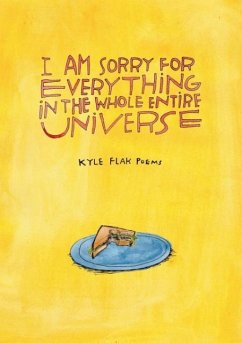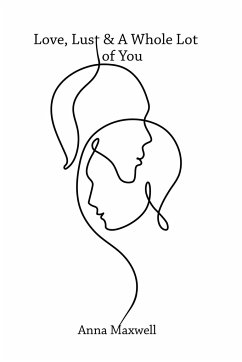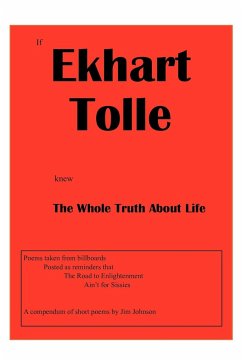
Would You Be Made Whole?
Versandfertig in über 4 Wochen
17,99 €
inkl. MwSt.

PAYBACK Punkte
9 °P sammeln!
In these ominous, often playful, always witty and sublimely sexual sonnets Friedberg "conjures the romance of the brink," his speaker Everyman seeking to redeem the uncomfortable union of body and soul, "dignified by the exquisite function of his intellect/humbled by the licit function of his flesh." God's foibles complicate: "It's in the grotesque that's made manifest the very mind of God." Yet in a series of poems based on Renaissance iconography, we find moving expressions of spiritual connectedness. As well, a poetical gerbil, having grudgingly licked molasses from his deity's finger, resu...
In these ominous, often playful, always witty and sublimely sexual sonnets Friedberg "conjures the romance of the brink," his speaker Everyman seeking to redeem the uncomfortable union of body and soul, "dignified by the exquisite function of his intellect/humbled by the licit function of his flesh." God's foibles complicate: "It's in the grotesque that's made manifest the very mind of God." Yet in a series of poems based on Renaissance iconography, we find moving expressions of spiritual connectedness. As well, a poetical gerbil, having grudgingly licked molasses from his deity's finger, resumes work on his ". . . long, discursive piece on the states of existence, the spectrum from pure matter to pure myth, from being merely a thing to being merely meaning." His deity wisely "leaves him to it." One of the funniest, most thought-provoking collections I know -Lee Gould When Gregg Friedberg writes about tongue-tied lovers, you can't be sure if he's being only metaphorical. These truly "unruly" sonnets convey more than just an edge of ferocity and danger. As in Modern Love, George Meredith's own unruly sequence of a century and a half ago, and even earlier than that with Shakespeare's unruly sonnets, Friedberg discovers poetry in the conjunction of the alluring and the self-destructive, the erotic and the spiritual. These poems-intriguing, powerful, edgy (sometimes vertiginously so), and moving-seduce us with their verbal and syntactical pinwheels and cartwheels. What can we do except give in? -Lloyd Schwartz What we're privy to here is a bold, honest exploration of human longing, its myths, devastations, objects of desire: the self, a familiar other, fantastic phantoms. What we have here is fable and failure of fable-Why has God wasted Creation on the likes of me? Why do I ask? Friedberg brings the desperate, the euphoric, the resigned, into focus and enables Art's highest service: here is mine; and what is yours? "Unruly" by way of meter and rhyme, these sonnets are free and fluent, wield classic narration with the predator's precision, volte-face strikes-then resolutions musically honed in sublime confluence of decor and purpose: "The old Chevy winks, slows, veers onto the exit ramp, under the no-fault sky." -Nick Barnes












